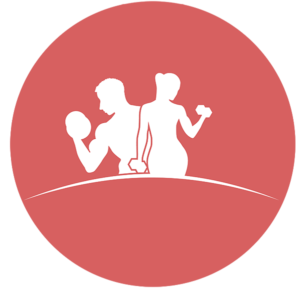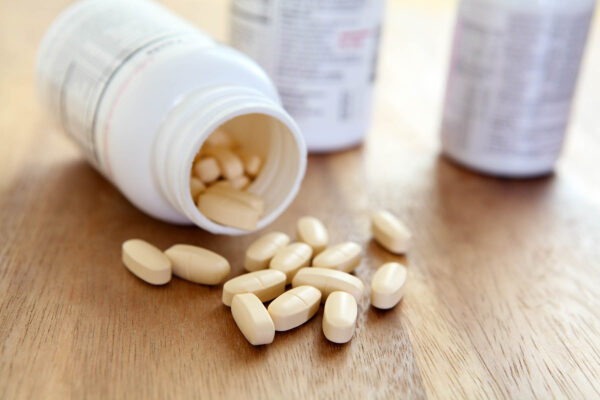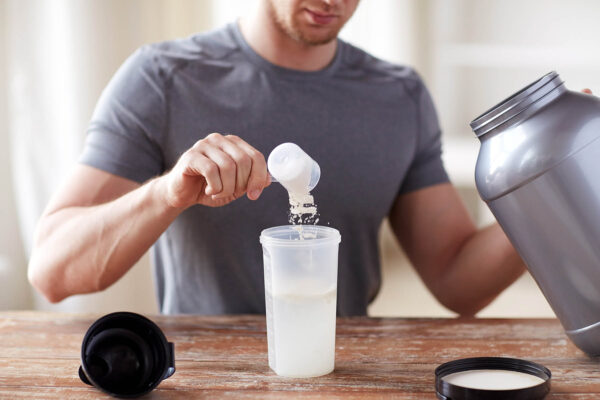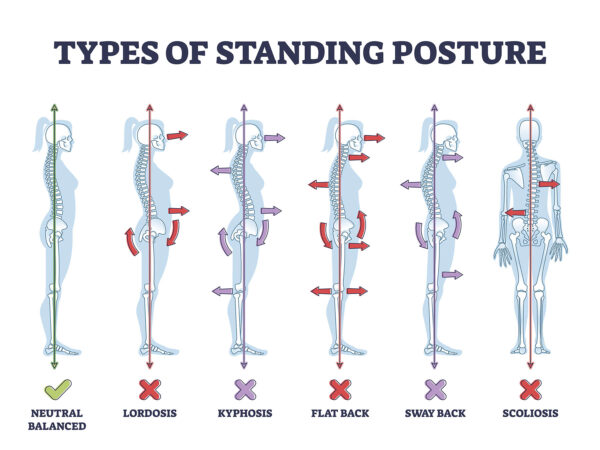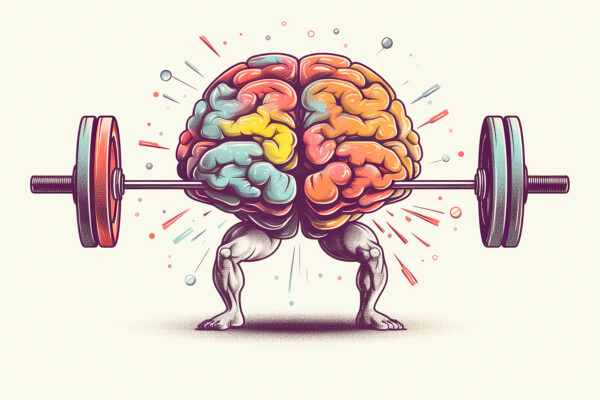Vitamin B complex is a bodybuilder’s best friend, and here’s why. This supplement contains riboflavin, B6, B12, thiamin, biotin, pantothenic acid, and folate. This group of vitamins and nutrients are amazing at creating energy, which is crucial to successful workouts. Let’s look at each of these components further and see just how they make vitamin B complex so useful.
Riboflavin (B2)
Riboflavin or B2 is a B vitamin that the small intestine absorbs. This B vitamin helps create aerobic energy by converting nutrients into energy, as well as helping maintaining healthy cellular functions. A lack of riboflavin can cause poor performance, lack of focus, and a lack of endurance. However, since riboflavin can be found in many common foods such as milk, eggs, cottage cheese and yogurt, chances are that a healthy diet will provide all the riboflavin you need.
B6
This vitamin is found in a large quantity of foods, and is safely added to even more. B6 plays a role in a variety of functions within the body, such as breaking down glycogen for energy, helping produce red and white blood cells, supporting energy production, helps synthesize amino acids, and can even reduce the risk of cardiovascular disease. Without a healthy amount of B6, you can suffer from a weakened immune system, muscle weakness, nausea, and anemia. This can hinder not only your workout performance, but your bodily functions as a whole. On the other hand, too much B6 in your diet can cause toxicity in your blood, which in turn can lead to peripheral nerve damage. It’s important to consider any medications you are taking as well, especially antibiotics as B6 can interfere with certain ones. Since B6 is found in most high-protein foods like fish, eggs, beef, and poultry, you shouldn’t need to supplement specifically for the vitamin.
B12
B12, like B6, plays a major role in multiple functions of the body. It helps keep the myelin sheath, a protective layer that surrounds nerve fibers, healthy and strong. The vitamin also helps convert nutrients into energy as well as aiding in the production of red blood cell production. When you have a B12 deficiency, it’s most likely due to a poor diet. B12 is only found in animal products like dairy, eggs, and meat, and is an important component when considering its energy boosting abilities, its abilities to aid the nervous system, and its ability to lower the risk of cardiovascular disease. Unlike B6, B12 isn’t dangerous if “too much” is absorbed, but it can interfere with medication designed to decrease stomach acid.
Thiamin
When it comes to energy production, few vitamins are as useful as thiamin. Thiamin is key to assisting your body in the breakdown of glycogen and branched-chain amino acids. Too little thiamin in your diet can cause a lack of energy and decreased focus, but thankfully this vitamin isn’t a hard one to find. It can be found in wheat germ, pork, nuts, and legumes, as well as multiple supplements and multivitamins. Another positive side of thiamin is that it’s basically impossible to have too much, as any excess of the vitamin will simply be removed by the body through urine. Also, the vitamin has no known interactions with medications.
Biotin (B7)
Biotin is another helpful vitamin that converts nutrients into energy, as well as synthesizing DNA to ensure healthy cell development. Since your body needs such a small amount of biotin, and it’s so easily found in foods like nuts, green leafy vegetables, legumes, and cheese, deficiencies are rare. On the other end of the spectrum, too much biotin seems to have no impact on the body, and there are no known interactions between the vitamin and medications.
Pantothenic Acid (B5)
This vitamin plays a huge role in metabolism and energy production. Without a healthy amount of this vitamin, you can experience fatigue, nausea, sleep disruption, and impaired coordination. Thankfully, this is a vitamin that can be found in a healthy diet, as well as multiple supplements. Tomatoes, beef, dairy, legumes, and poultry are all excellent sources of pantothenic acid, and since there are no side effects to having “too much” of the vitamin, you don’t have to change the amounts of these foods that you eat to counteract the amount of the vitamin you absorb. Also, pantothenic acid has no known interactions with medications.
Folate (Folic Acid)
When it comes to cell division and DNA synthesis, folate is the vitamin you need. This vitamin also plays an important role in repair tissues and helping in the maturation of red blood cells. Folate is also an important component to consider when pregnant, as it aids in the development of a healthy embryo. It can even lower the risk of heart disease. Folate can be easily consumed through your diet, as it is found in dark green leafy vegetables, fortified grains, legumes, and strawberries. Too much folate in itself isn’t dangerous, but elevated levels can hide vitamin B12 deficiencies. There are no known interactions between folate and medications.
